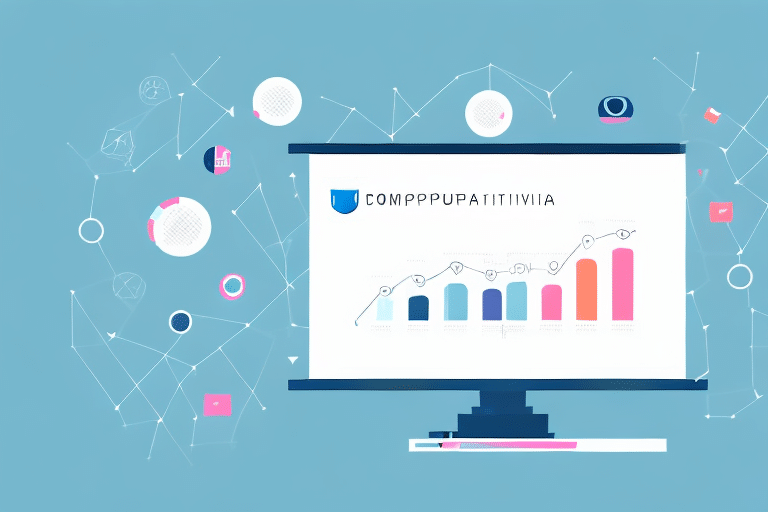The Importance of Customer Retention in Today's Business Landscape
In today's highly competitive business environment, customer loyalty is more critical than ever. Retaining existing customers is not only more cost-effective than acquiring new ones but also essential for sustainable growth and profitability. According to a Bain & Company study, increasing customer retention rates by just 5% can boost profits by up to 95%. Loyal customers are more likely to purchase new products, refer others, and provide valuable feedback, all of which contribute to a company's success.
Additionally, customer retention builds a strong brand reputation. Positive customer experiences lead to word-of-mouth referrals, enhancing brand awareness and credibility. This positive reputation helps attract new customers and differentiate the company in a crowded marketplace. Furthermore, during economic downturns or market challenges, loyal customers provide a stable revenue base, helping companies navigate tough times.
Transforming Customer Retention Strategies with Data Science
Data science has revolutionized the way businesses approach customer retention. By leveraging advanced analytics, companies can gain deep insights into customer behavior, preferences, and trends. These insights enable the design of targeted retention programs that effectively address customer needs and enhance loyalty.
Personalizing the Customer Experience
One of the primary advantages of data science in retention is personalization. Analyzing individual customer data allows companies to create customized offers, promotions, and recommendations tailored to each customer's preferences. This personalized approach fosters stronger relationships and increases customer loyalty.
Predicting and Preventing Customer Churn
Data science enables companies to identify customers at risk of churning by analyzing behavior and engagement metrics. Machine learning algorithms can detect patterns that signify dissatisfaction or disengagement, allowing businesses to implement proactive measures such as targeted promotions or personalized communications to retain these customers.
Identifying Key Drivers of Customer Loyalty Through Data Analysis
Understanding what drives customer loyalty is crucial for effective retention strategies. Data analysis helps companies pinpoint specific factors that influence loyalty, such as product quality, customer service, pricing, and personalization. By identifying these key drivers, businesses can allocate resources more effectively and prioritize initiatives that will have the most significant impact on retention.
Uncovering Behavioral Patterns
Data analysis can reveal hidden patterns in customer behavior. For instance, it might show that customers who engage with a particular feature are more likely to remain loyal or that those who receive personalized communications have higher retention rates. These insights allow companies to refine their strategies to better meet customer needs.
Leveraging Machine Learning and Predictive Analytics for Retention
Machine learning and predictive analytics play a pivotal role in forecasting future retention rates and identifying potential areas for improvement. By analyzing historical data, predictive models can forecast customer behavior with high accuracy, enabling companies to anticipate changes and adapt their strategies accordingly.
Enhancing Predictive Capabilities
Machine learning algorithms can process vast amounts of data to identify trends and make predictions about future customer behavior. This capability allows businesses to stay ahead of potential churn and implement timely interventions to retain customers.
Continuous Improvement Through Adaptive Models
Predictive models can adapt and improve over time as more data becomes available. This continuous learning process ensures that retention strategies remain effective and aligned with evolving customer preferences.
Personalization and Big Data in Enhancing Customer Loyalty
Big data analytics complements personalization efforts by providing a comprehensive view of customer behavior and preferences. By analyzing large datasets, companies can segment their customer base and tailor retention programs to meet the specific needs of different groups.
Customized Retention Programs
With insights from big data, businesses can design retention programs that offer personalized incentives, communications, and services. This customization not only increases retention rates but also enhances overall customer satisfaction.
Measuring Program Effectiveness
Big data allows companies to track and measure the effectiveness of their retention programs. By analyzing engagement and retention metrics, businesses can identify which programs are successful and refine those that need improvement.
Best Practices and Challenges in Implementing Data Science for Retention
Implementing data science projects for customer retention requires adherence to best practices to ensure success. High-quality data collection, robust data management, and strong data governance frameworks are essential. Additionally, companies must invest in the right infrastructure and talent to support data-driven initiatives.
Ensuring Data Quality and Privacy
Maintaining high data quality and ensuring customer privacy are critical. Companies should establish data governance policies, implement security measures, and comply with relevant regulations to protect customer information.
Overcoming Implementation Challenges
Businesses may encounter challenges such as resource limitations, data silos, and organizational resistance to change. To overcome these obstacles, fostering a data-driven culture, providing adequate training, and clearly defining project goals are necessary steps.
Case Studies: Success Stories in Data-Driven Customer Retention
Numerous companies have successfully leveraged data science to enhance their customer retention rates. For example, Amazon uses data science algorithms to provide personalized recommendations based on browsing and purchase history. Starbucks employs predictive analytics to forecast customer demand and optimize store operations. Additionally, Airbnb utilizes machine learning to predict which customers are likely to book a stay, allowing for targeted messaging and incentives.
These success stories highlight the significant impact data science can have on customer retention. By adopting similar strategies, other companies can unlock valuable insights and drive long-term loyalty and profitability.
Conclusion
Data science offers powerful tools for enhancing customer retention. By leveraging advanced analytics, machine learning, and big data, companies can gain deep insights into customer behavior, personalize experiences, and implement proactive retention strategies. Adhering to best practices and learning from successful case studies can help businesses navigate challenges and achieve sustained growth through improved customer loyalty.




















